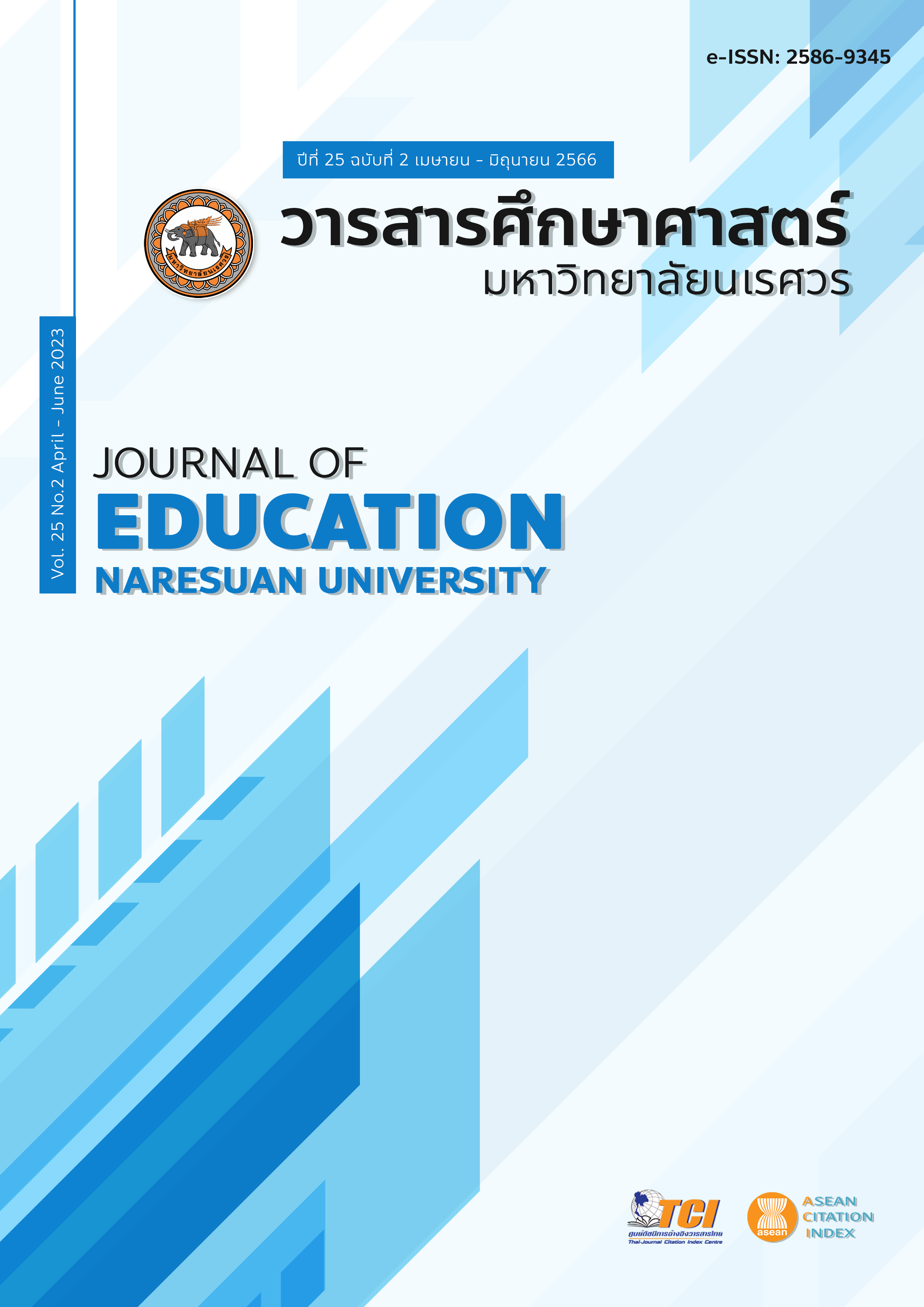THE DESIRABLE SCENARIO OF EDUCATIONAL QUALITY ASSURANCE WITH WORLD-CLASS STANDARD IN VOCATIONAL EDUCATION
Main Article Content
Abstract
This study aimed to 1) estimate the trend of the world-class standard educational quality assurance of schools in vocational education, 2) analyze situations affecting the world-class standard educational quality assurance of schools in the future, and 3) analyze future confirmatory wheel of the world-class standard educational quality assurance of schools. The research procedures were divided into 3 phases. Phase 1 involved the study of 21 key informants’ opinions towards the scenario of the world-class standard educational quality assurance of schools using Ethnographic Delphi Futures Research (EDFR). Phase 2 entailed an investigation of the effects on the world-class standard educational quality assurance of schools by creating the future wheel by Structural Equation Modeling Program. Finally, Phase 3 involved drafting the future scenario of the world-class standard educational quality assurance of schools. The research findings revealed that the future scenario of the world-class standard educational quality assurance of schools in vocational education consisted of 4 components: 1) Input, 2) Process, 3) Output, and 4) Environment. It found 16 observed variables, and 182 expected future events covering the quality measurement system of vocational education. According to consistent opinions of the experts, 115 events had probability level at the highest level, 56 events were at a high level, and 1 event was at a moderate level. The experts’ opinions were not in the same way for 4 of 6 events about expected future scenarios with Factor Loading at .772-1.109 and the significance level of .001. According to the event generation congruence measurement of the world-class standard educational quality assurance of schools in 2019-2028.
Article Details

This work is licensed under a Creative Commons Attribution-NonCommercial-NoDerivatives 4.0 International License.
The owner of the article does not copy or violate any of its copyright. If any copyright infringement occurs or prosecution, in any case, the Editorial Board is not involved in all the rights to the owner of the article to be performed.
References
Chareonwongsak, K. (2014). Lifelong learning. Retrieved from http://www.snc.lib.ac.th/sncclibblog
Daoruang, C. (2017). The Scenario of vocational education in dual vocational education of the office of vocational education commission in the next decade (Doctoral dissertation). Chachoengsao: Rajabhat Rajanagarindra University.
Hoy, W. K., & Miskel, G. C. (2012). Educational administration, theory, research and practice (7th ed.). (Translation Editor: Selahattin Turan). Ankara: Nobel Publications.
Kojuantiaw, S. (2014). Strategies for quality assurance management of technical colleges in office of the vocational education commission (Doctoral dissertation). Bangkok: Sripatum University.
Makranurak, D. (2011). The Scenario of Thai Vocational Education in the next decade (2011-2021) (Doctoral dissertation). Khon Kaen: Khon Kaen University.
Office of the Education Council. (2017). Thailand education scheme (2017 – 2036). Bangkok: Prikwan Graphic.
Office of Quality Award. (2011). The criteria of national quality award (2012 – 2013). Bangkok: Pongwarin Printing.
Ruamchomrat, J. (2015). Model of dual vocational education system management in the office of vocational education commission (Doctoral dissertation). Kanchanaburi: Kanchanaburi Rajabhat University.
Sallis, E. (2002). Total quality management in education (3rd ed.). London: Kogan Page.


